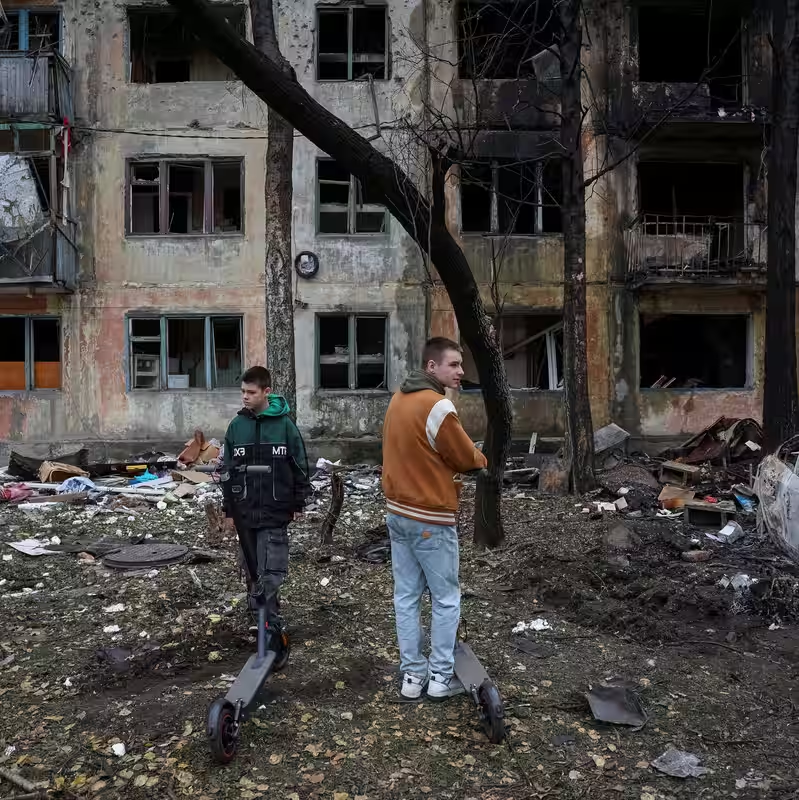Table of Contents
- Sudden Reversal on High-Stakes Summit
- Diplomatic Whiplash Over Ukraine Strategy
- What the Budapest Meeting Was Supposed to Achieve
- Experts Warn of Familiar Patterns
- Sources
Trump Backtracks on Putin Meeting
In a sharp about-face, the White House announced Tuesday that President Donald Trump will not meet with Russian President Vladimir Putin in the near future—contradicting Trump’s own comments just days earlier.
Last week, Trump confidently told reporters he expected to speak with Putin “in two weeks or so” to discuss ending the war in Ukraine. He even suggested the two leaders would convene in Budapest following a “productive” phone call between Secretary of State Marco Rubio and Russian Foreign Minister Sergey Lavrov.
But according to a senior White House official, those plans have been shelved—at least for now. The reversal raises fresh questions about the administration’s consistency on foreign policy, especially regarding one of the world’s most volatile conflicts.
Diplomatic Whiplash Over Ukraine Strategy
The latest shift comes amid growing scrutiny of Trump’s approach to the Ukraine war. Just before his call with Putin, the president hinted he was ready to approve the delivery of long-range missiles to Kyiv—a move that would have significantly escalated U.S. military support.
However, after speaking with both Putin and Ukrainian President Volodymyr Zelensky, Trump reportedly put that plan on hold. Critics argue this reflects a recurring pattern: Trump appears ready to take a hard line against Russia, only to soften his stance after direct talks with Putin.
“It’s déjà vu all over again,” said one foreign policy analyst who requested anonymity. “Every time momentum builds for stronger action, a Trump-Putin call seems to reset the clock.”
What the Budapest Meeting Was Supposed to Achieve
Budapest was floated as a potential neutral ground for high-level talks aimed at brokering a ceasefire or peace framework in Ukraine. Hungary, under Prime Minister Viktor Orbán, has maintained relatively warm ties with Moscow while remaining within the European Union—a delicate balancing act that made it a plausible venue.
Though no formal agenda was released, sources close to the White House suggested the meeting would focus on de-escalation, prisoner exchanges, and possibly energy infrastructure protections in war-torn regions.
Now, with the summit off the table—at least temporarily—diplomats on all sides are left guessing what comes next.
Experts Warn of Familiar Patterns
Foreign policy veterans have voiced concern that Trump’s personal diplomacy with Putin may be undermining broader strategic goals. “Bilateral summits can be useful,” said Dr. Elena Martinez, a senior fellow at the Atlantic Council, “but not when they’re used to bypass allies or reverse course without consultation.”
Ukrainian officials have remained publicly diplomatic but are reportedly frustrated by the unpredictability. One Kyiv-based source described the situation as “exhausting”—noting that battlefield decisions often hinge on perceived U.S. resolve.
Meanwhile, White House Press Secretary Karoline Leavitt maintained that Trump’s outreach remains part of a “comprehensive strategy” to end the war. She emphasized that Putin had previously committed to meeting Trump, though she offered no timeline for rescheduling.
Sources
The New York Times: Trump Will Not Meet With Putin Soon, Official Says in a Reversal




